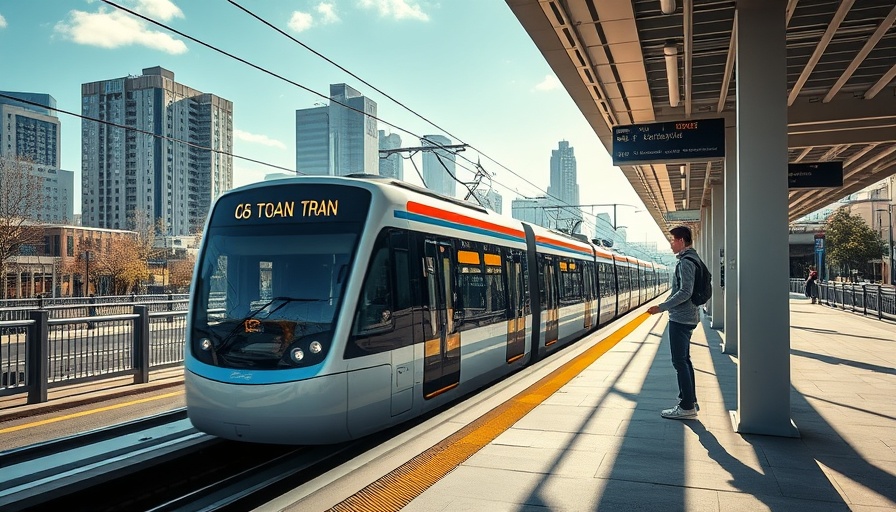
Mecklenburg County's Ambitious Transit Plan: A Game Changer for Charlotte
Mecklenburg County voters are gearing up for a significant decision that could reshape the region's transportation landscape. With a proposal to fund a $25 billion transportation plan through a 1-cent sales tax increase, residents will soon have the opportunity to vote on whether this tax will be implemented. The tax hike would bring the sales tax rate to 8.25%, amounting to an estimated annual cost of $240 for the typical household.
The Allocation of Funds: Balancing Needs
The ambitious 30-year transportation plan promises a balanced allocation of funds: 40% for roads, 40% for rail initiatives, and the remaining 20% for bus services and microtransit options. This well-rounded approach aims to tackle commuting issues from multiple angles, providing solutions for everyone from everyday commuters to occasional travelers. One notable aspect of the plan is the proposed transfer of transit operations from the city of Charlotte to a new regional authority, emphasizing a collaborative approach to transportation in the area.
Historical Context: A Long-Awaited Transformation
This plan is not just another proposal; it carries the weight of delayed projects and unfulfilled promises. Notable initiatives like the Red Line, which is designed to connect north Mecklenburg, and the Silver Line, linking east Charlotte to Charlotte Douglas International Airport, have been on the community's radar for years. If the measure passes, it will mark the most significant transit expansion Charlotte has seen in decades, a fact that resonates deeply with those who have watched the city's growth over the past few years.
Diverse Perspectives: Voices from the Community
The decision on this proposal will provoke diverse reactions throughout the community. Proponents argue that the investment is crucial for maintaining a high quality of life in an ever-growing city. They highlight how improved transit options could reduce traffic congestion, lower carbon emissions, and promote economic development. On the other hand, some residents argue against the sales tax increase, questioning the need for such a high expenditure and the effectiveness of previous projects. The debate around the transportation plan serves as a microcosm of broader discussions on urban growth and infrastructure in Charlotte.
Future Insights: What Lies Ahead for Charlotte Commuters
If the sales tax increase is approved, the implications for Charlotte's commuters could be profound. Enhanced transit options could lead to a significant reduction in traffic congestion and provide viable alternatives for those who rely on personal vehicles. The long-term benefits of improved public transport not only enhance convenience but also contribute to a sustainable economic model for the region. Local businesses could see an uptick in customer traffic from areas previously underserved by public transport.
Why You Should Care: Community Engagement and Participation
As a Charlotte resident, whether a commuter, a parent, or an investor in local real estate, your opinion matters greatly. This vote represents more than just a fiscal decision; it's an opportunity to shape the future of Charlotte’s infrastructure and community. Engaging in this dialogue prepares you for not only participating in this vote but also for advocating for your community’s needs and the vitality of the regions you call home.
Stay in the Loop: Connect with Charlotte Local Unplugged
As the election date approaches, it's essential to stay informed about local developments and how they could impact you. Join discussions and keep abreast of the freshest spots, events, and news by checking out Charlotte Local Unplugged on Facebook at @charlottelocalunplugged. Understanding the nuances of this transit plan may affect your daily commutes and living conditions, making community engagement vital as we all navigate these changes together.
 Add Row
Add Row  Add
Add 




Write A Comment